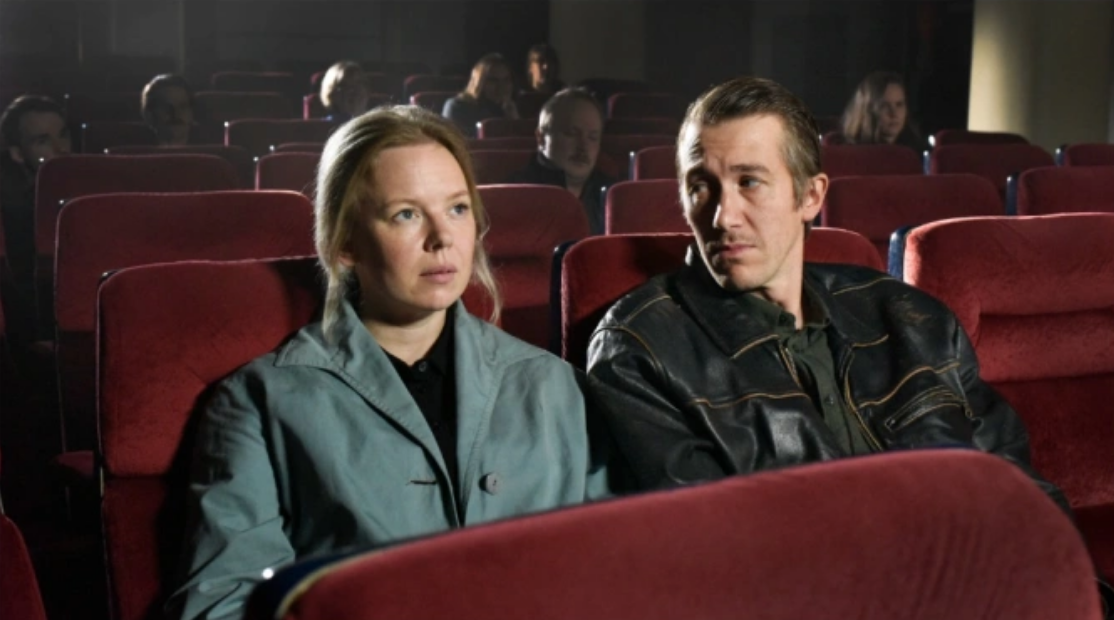Change at the top, some firsts, Rohrwacher, Moretti and Bellocchio and expectations | Cannes
CANNES, FRANCE – Some firsts at the Cannes Festival which starts today, an Italian contingent in the competition slate and what I look forward to the most this year.
At the helm of the festival this 76th edition a woman, Iris Knobloch, who replaces Pierre Lescure as president of the festival after a tenure that lasted six years. Programmer Thierry Frémaux and she already know each other well from the time Knobloch worked at WarnerMedia, where she held various senior positions for the last twenty-five years in New York, Los Angeles, London and, for the last decade, in Paris. Her lengthy resume advancing the business of film and entertainment, the broad-shoulders charisma she projects, they make her a probable fit for the Cannes presidency, a job description that is part-ambassador part-money man. Sponsors need to be cultivated as does the festival’s relevance on the world stage, always up for questioning and having to confront the latest controversy, usually me too-related, these days. The brain of the operation is the programmer, Thierry Frémaux, who along with Christian Jeune and Stéphanie Lamome solicit and watch 2,000 films every year and choose which ones will be included.
Another first: Jonathan Glazer, the filmmaker behind “Sexy Beast” and “Under the Skin,” brings his latest, “The Zone of Interest,” to Cannes. This is the first time he has a film here, “Under the Skin” premiered at the Venice Film Festival nearly ten years ago.
Italy figures prominently in 2023, three veteran filmmakers from the nation that gave us Gramsci, Scola and Aperol spritz are in Cannes. Alice Rohrwacher’s “La Chimera,” the last one in a tryptich that included “Felice Lazzaro” and “Le Meraviglie” and with which Rohrwacher asks, what are we to do with the past? In “La Chimera” Josh O’ Connor (“The Crown”) plays an archeologist involved in the trafficking of artifacts. Film also stars Isabella Rossellini and Alice Rohrwacher.
“Il sol dell’avvenire” (“A brighter tomorrow”; featured image) by Nanni Moretti stars Margherita Buy, France’s Mathieu Amalric and Moretti himself. Moretti won the Palme D’Or in 2001 with “The Son’s Room.” Giovanni (Moretti) is a filmmaker who turns out a new film every five years and prepares to direct a new one on the events of 1956, a year of major crisis for the communist party during which Italians left the party en masse. The script-within-the-film deviates between action movie and romance, I haven’t seen the film yet but I expect it to be a joyous, riotous and enlightened mix of nostalgia, cinephilia, and complicated human relationships, if I’m basing myself on previous Moretti films.
Finally on the Italian side of the festival, the formidable Marco Bellocchio, who makes films, series and shorts, recently about a mafia boss informant (“The Traitor’; 2019) and the Red Brigades’s 1978 kidnapping, and subsequent assassination, of Aldo Moro (2022’s “Esterno Notte”), brings “Rapito” (“Kidnapped”) to Cannes. Bellocchio is well-watched and appreciated because of his weighty examinations of Italy’s contemporary history. The filmmaker, at 83 a monstre sacré nearing the end of a storied filmmaking career, has a romantic approach to showing significant events in Italy’s history–a fascinating filmmaker. 1858, Bologna, the Jewish quarter, the Pope’s watchmen burst into the Mortara family’s home and remove their son Edgardo. The child, a Jew, must receive a Catholic education. Edgardo’s parents will do everything to get their son back. True story. Supported by public opinion in liberal Italy and the international Jewish community, the Mortara’s fight takes on a political dimension, but the Catholic Church and the Pope refuse to return the child in a bid to strengthen their waning power. “Rapito” is a German-Italian production.
The (other) films I look forward to watching this year the most: the Nuri Bilge Ceylan-directed “Kuru Ostlar Ustune” (“About dry grasses”), I am a fan of his slow-brewed, cerebral dramas, “Climates” and more recently “Winter Sleep,” which won the Palme D’Or in 2014, among them. “La passion de Dodin Bouffant” (“The Pot au feu”) by Tran Anh Hung, it stars Juliette Binoche and Benoît Magimel, who recently won France’s Cesar for Best Actor, a period piece that takes place in 1885 about an affair between a cook and the gourmet she works for. “Perfect Days” by Wim Wenders, shot in Japan, about a bathroom attendant who travels from job to toilet and listens to rock music, “Black Flies” by Jean-Stéphane Sauvaire about two paramedics in New York City (Sauvaire has been living in New York City for decades), one of whom is young and inexperienced (played by Tye Sheridan) and is confronted with the brutality of human frailty and despair while dispensing with his duties, under the watchful and benevolent gaze of Gene Rutkovsky (Sean Penn), his co-driver.
Rounding out my list, Aki Kaurismaki’s “Fallen Leaves” (“Kuolleet Lehdet”) in which two lonely people meet by accident one night in Helsinki, and each tries to find in the other their first, their only and their last, love. Things are complicated by his alcoholic tendencies and a phone number that gets lost and Jonathan Glazer’s “The Zone of Interest,” in which a Nazi officer falls in love with the woman of the commander of the Auschwitz concentration camp.
It’s predicted that this will be a rainy Cannes Festival, in the words of Stuart Smalley, and that’s OK. I’m a little more concerned about the French unions, still angry about Macron’s muscular passing of the retirement-age reform law last month, who have threatened to disrupt the festival, in spite of no permits being delivered to them to demonstrate and being locked out of the site surrounding the Palais by the Cannes police chief. A la guerre comme à la guerre.
news via inbox
Nulla turp dis cursus. Integer liberos euismod pretium faucibua



